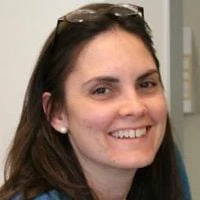
According to the 2016 Edelman Trust Barometer, half the world population distrusts government. Understanding why and how governments can better serve their citizens was the central theme of the “Governance Gap” high-level public discussion at the World Bank-IMF Annual Meetings on Thursday.
“Governance is complex and complicated. We need to unpack it to understand those complexities better,” said Kyle Peters, interim chief operating officer and managing director of the World Bank at the start of the event, moderated by Clare Short, chair of the CITIES Alliance and former UK Secretary of State for International Development.
“We need to work harder to better understand what is driving these implementation gaps and how we might find effective ways to bridge them,” Peters said. The World Bank’s forthcoming World Development Report, Governance and the Law, will explore how good governance is undermined by the gap between government rhetoric about service delivery and reality.
“Distrust is a rational response of people to a global economy that is working for the few and not working for the majority,” said Winnie Byanyima, executive director of Oxfam International. When political power is captured by the wealthy, the masses will distrust government, she said, citing Oxfam’s “Broken at the Top” report.
“Poor people are as clever as rich people,” Byanyima said. “They can see that the system of public policy making is rigged against them.” She called on the World Bank to continue supporting citizen engagement and government accountability mechanisms and to push harder on global corporate tax reform.
Linking local taxes to local services could help repair trust between citizens and governments, said Adnan Khan, research and policy director of the International Growth Centre at the London School of Economics. “People don’t trust governments because they overpromise and under deliver,” he said. But when people see their street lights working and their potholes repaired, they are more likely to pay the taxes which keep those services going. A virtuous cycle.
Henry Rotich, cabinet secretary in Kenya’s National Treasury described his country’s efforts to increase citizen participation in government and—as a result—improve governance. Since 2010, public consultation has been required for any new policies or laws. Digital payment options are available for many services, and for one major utility—water—citizens can easily report outages or other issues online. Rotich said this greatly reduced the utility’s response time. “We think it’s something that can be replicated in other countries.”
“When people have opportunities to draft laws that govern them they are more likely to see them as making sense… and more likely to believe they are legitimate,” said Edmund Malesky a professor of political economy at Duke University. He described his research with Vietnamese firms which showed that firms engaged in a consultative process to draft business regulation were more likely to adhere to those regulations.
The impunity of corruption is a “big factor” in citizens’ distrust of government, Oxfam’s Byanyima emphasized. In many places, “corruption is very transparent and the people see,” she said. But that kind of “petty corruption” can be reduced, Malesky added. Evidence shows that transparency—publishing local budgets, freedom of information acts, and the like—does help. Grander scale corruption, like bribery in large scale projects, is more intractable, Malesky said. Although, he added, there has been some improvement with OECD’s 1997 Anti-Bribery Convention which requires companies of signatory states to be prosecuted at home for engaging in corruption abroad.
Panelists returned again and again to the importance of meaningful engagement.
“When people organize to challenge seriously, you see results,” Byanyima said.


Join the Conversation